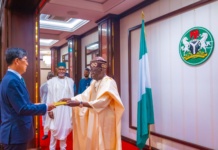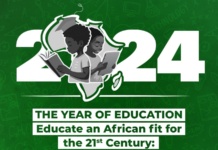Whether the African writer is liked or not liked is of no value, of no importance, of no relevance, but he or she must be read and evaluated dispassionately following the tradition Gerald Moore established in 1962.
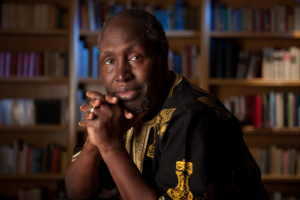
In fact, since that time when Moore published his Seven African Writers, African literary criticism can rightly be said to have been seen and accepted as a worthy enterprise of scholarly and professional enquiry with its own distinct traits that must occupy closely the “health of mind of the critic as the doctor with the health of the body,’’ to borrow I. A Richards’ words (25). Clearly, since 1962 different kinds of value judgments, pronouncements and estimates of comparative assessment and comparative greatness of African writers and writings have been the concern or preoccupation of the literary critic and reader. But their true worth and value to the development and greatness of our literature and criticism can be said, rightly or wrongly, to be still elementary. We may not accept it but the corpus of creative, imaginative works and books known today in the domain of established African literature far outnumbers the body of valuable criticism when we speak, at least, in terms of books (or handbooks) claiming originality, to the literature of contemporary African literary criticism. Today, in Africa, we seem to have far more writers than critics, and these critics, in the main, seem to be more concerned with writers from their respective national or ethnic territories and domains. This perspective needs immediate qualification.
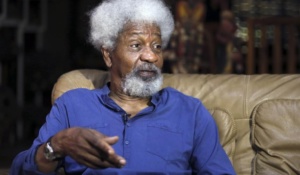
Since the nineteen seventies, following the example of the already cited Gerald Moore, “the intensity,” to quote Solomon Ogbede Iyasere, “with which African critics have become engaged in the criticism and review of African creative works” (20), has been remarkably phenomenal in the development and direction of African literature and contemporary African literary criticism. The significance of the development and direction were such that attempted to curtail the dominance by foreign, that is, Western, critics, of African literary enterprise, that is, African literature and its criticism. Standards of critical tools and values that were considered to be foreign to Africa were to be done away with and jettisoned. As the editors of Presence Africaine put it, ‘’The soul of our people will not be heard in the concert of nations until they have regained their artists, their authority to judge and their privileges as consumers and interpreters of their works of art. In short they must retrieve the organic dimensions of their own vitality’’ (qtd. in Solomon Ogbede Iyasere 21). And in the more blatant words of Joseph Okpaku, also quoted in Iyasere’s essay, “The primary criticism of African art must come from Africans using African standards. We cannot accept either of the two existing approaches to criticism of African literature. It is as undesirable to plead for leniency in criticizing African works as it is absurd for Lewis Nkosi to ask that Western critical standards be used”(21). When these words were uttered African scholars’ nationalistic idiosyncrasies were in vogue in and outside the arena and orbit of African literature and its criticism. At the time black grains of African cultural features were greatly attractive to the African traditional brain of the African-skinned intellectual. The African scholar’s rhetoric of persuasion and conviction must be employed in praise and defence of African artistic productions that were adjudged by Western critics especially not to make the expected grade. Ernest Emenyonu’s chastisement of Bernth Lindfors for his jaundiced criticism of Cyprian Ekwens’s fictional art is too well known to be re-visited here in full. But I hasten to quip here that both critics – the African and Western, respectively, – were deeply concerned about the ideas of literary value as they perceived them from their respective rhetorical and moral stand-points.
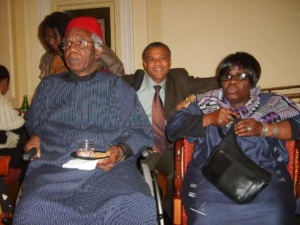
The marks these standpoints (and others) have left on African literary criticism today are discernibly the marks of the chosen tongue of critical rigour of high value and the marks of the chosen tongue of ethnic-national glorification of neighbourly art. While Lindfors’ chosen tongue was universal and equally aided by its universal appeal Emenyonu’s was “vernacular-traditional,” to borrow JP Clark’s words (“Interview with John Pepper Clark” (16)), a mode that was not good enough for the cause it meant to promote or serve. In his attack of Ekwensi, Lindfors was defending and promoting universal criticism; in his defence of Ekwensi Emenyonu was protecting his countryman from universal annihilation. But we must make no mistake about it: Ernest Emenyonu is an efficient, unique, sound elderly scholar and critic.
Today in African, especially in Nigerian literary criticism, vernacular- ethnic critics have taken over or seem to have taken over the business and profession of Nigerian literature and criticism from the experts of natural instincts of truthful criticism and absolute set of principles of taste and decorum. Critics of conscience are giving way to critics of ethnic value, critics who encourage and father commercialism. The meaningful call and avid promotion of an African aesthetic which earlier critics and writers such as JP Clark championed are now being controversially abused. In fact, JP Clark’s “vernacular-traditional” literature and criticism is now being bastardized as ethnic bigotry worshipped as useful criticism in several quarters. Critics of this sort and mind speak of the works of authors and writers from their ethnic, regional and “national” groups as texts that must be studied and interpreted from the traditions and elements that inspired and produced them. A critic outside the ethnic tradition is censored disingenuously and disadvantageously to the extent that he or she is accused of using strange, foreign elements and criteria to judge, say, a Yoruba or Igbo imaginative literature. Deliberately, I refrain from any specific example, I being from a miniature, wee Nigerian ethnic group of no importance or consequence in contemporary Nigeria. This speaks volumes or should speak volumes about our contemporary criticism. But this is part of the problem of Nigerian, nay, African literary criticism of the present time. And what will be my defensible position if I say this or that book from this or that ethnic or regional group does not meet the literary grade of imaginative or realistic acceptability? As a critic and writer from a wee ethnic group with no literary stronghold whatsoever and with no identifiable cult or school of defenders, whatever my qualified attitude or position may be or is, is of no value and will amount to no value. Our literature and criticism cannot grow in good health this way. This view must be taken seriously otherwise ethnic quacks and dilettantes will now be the overseers of the “health of the mind” of our literature and criticism “as [is] the doctor with the health of the body” (I.A. Richards 25). This perspective and the sentiments it expresses may not be new, but the general theory they espouse is the general theory that hints at the dubious colour and odour that quackery and dilettantism are transmitting to the nostrils of our critical quest and taste.
Many of us seem to be too squeamish or to be too cowed by the achievements of our literary elders and mentors to attempt to open or break new grounds. Socrates taught Plato and Plato taught Aristotle. Each mentor and each mentee broke new grounds in scholarship. But there is hope that the generation(s) of the Femi Osofisans, Niyi Osundares, Tanure Ojaides, Adebayo Williams are worthy examples to cite in this connection. These four mentioned writers are well-languaged writers who are also very unique theoreticians and critics breaking new grounds in form and style – to the glory of our literature and criticism – as our Christian-minded literary brothers and sisters will put it, but not in the manner of Nollywood. In the last stretch of phrases one may perceive a dose of humour/laughter a creative critic should endeavour to imbed, if necessary, in his or her enterprise. Achebe does this excellently well in his essays in Morning Yet on Creation Day. So also does JP Clark in his The Example of Shakespeare.
One more issue. Why do our contemporary critics wait for the West to applaud our writers before they themselves do so? We must now learn to discover our writers (and critics) for the West rather than the West doing the discovery for us. This is imperative for the growth of our contemporary literature and criticism. Indian literary scholars have been doing this for years. They do not wait for the West to tell them who is a good or talented Indian writer. They objectively and faithfully ‘’sell’’ their writers to the West. Doing what I am hereby recommending will give Nigerian (and African) literary community its greatest happiness in no distant time.
Prof Tony Afejuku, an eminent scholar-poet, and a Fellow of the Literary Society of Nigeria, is of the University of Benin, Benin City. Some of his specialties and research interests include prose studies, poetry, creative writing, phenomenology, literary theory and criticism.
Kindly follow us on twitter:@AfricanVoice2


